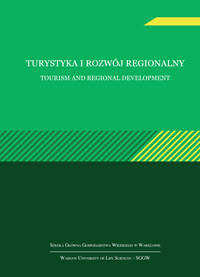Main Article Content
Article Details
Bibik N.M.: Competency approach: reflexive analysis of application. Competency approach in modern education: world experience and Ukrainian perspectives: Library for educational policy. K.I.S., Kyiv 2004.
Holovan M.S.: Competence and competence: experience of theory, theory of experience. Retrieved from http://uabs.edu.ua/images/stories/docs/K_VM/Holovan_03.pdf (accessed: 19.11.2019).
Dubaseniuk O.A.: Conceptual provisions of theoretical professional activity, “Pedagogy and psychology” 1994, No 4, pp. 94-97.
Zablotska O.S.: Competence, qualification, competence as key categories of competency paradigm of higher education, “Journal of Zhytomyr State University named after Ivan Franko” 2008, No 39, pp. 52-56.
Law of Ukraine “On Higher Education”. Retrieved from http://zakon3.rada.gov.ua/laws/card/1556-18 (accessed: 19.11.2019).
Ivanova S.V.: Functional approach to the definition of the professional competence of the teacher of biology and the organization of its improvement in the institution of postgraduate education, „Journal of Zhytomyr State University named after Ivan Franko. Series: pedagogical sciences” 2008, No 42, pp. 106-110.
Klipa Yu.V.: Actualization of the competence approach in the professional education of future economists – entrepreneurs, (w:) Social and humanitarian aspects of the development of financial and economic systems. K.I.S., Kyiv 2018, pp. 139-146.
Ovcharuk O.V. (Еd.): Competency Approach in Modern Education: World Experience and Ukrainian Perspectives: Educational Policy Library. K.I.S., Kyiv 2004.
Otroshchenko L.S.: Formation of professional competency of future economists-internationalists. The first step in science: materials of the All-Ukrainian scientific and practical conference, Lugansk 2009, pp. 75-78. Retrieved from http://essuir.sumdu.edu.ua/bitstream/123456789/56755/5/Otroschenko_Future_economists_prprofession_compete (accessed: 19.11.2019).
Pometun О.І.: Formation of civic competence: a view from the standpoint of modern pedagogical science, „Journal of School Exchange Programs” 2005, No 23, pp. 18-20.
Cherednichenko G., Zelikovska O., Bondarenko Yu.: Features of Students’ Training in Economics, „Theory and Methods of Education Management” 2012, No 9. Retrieved from http://umo.edu.ua/images/content/nashi_vydanya/metod_upr_osvit/v_9/43.pdf (accessed: 19.11.2019).
Shatkovska H.I.: Scientific and methodical principles of integration of knowledge of physics and chemistry of students of higher educational institutions of I-II levels of accreditation of technical and technological profile (Unpublished Candidate of Pedagogical Sciences dissertation). National pedagogical university named after M. P. Drahomanov, Kyiv 2007.
Downloads
- Paweł Dziemdziela, Edukacja ekologiczna prowadzona przez Grupową Oczyszczalnię Ścieków Łódzkiej Aglomeracji Miejskiej i jej znaczenie w równoważeniu rozwoju , Turystyka i Rozwój Regionalny: Nr 12 (2019)
Możesz również Rozpocznij zaawansowane wyszukiwanie podobieństw dla tego artykułu.
- Andrii Doronin, Olena Polishchuk, Vitalii Rybchak, Potential of renewable sources in Ukraine , Turystyka i Rozwój Regionalny: Nr 15 (2021)
- Nataliia Blenda, Yuliia Nesterchuk, Vitalii Rybchak, Indicators of the level of food security in Ukraine , Turystyka i Rozwój Regionalny: Nr 14 (2020)
- Diana Naherniuk, Vitalii Rybchak, Tourism industry as an instrument of economic development of Ukraine , Turystyka i Rozwój Regionalny: Nr 8 (2017)
- Tetiana Zosymenko, Vitalii Rybchak, Opportunities to increase Ukrainian export competitiveness in the European Union market , Turystyka i Rozwój Regionalny: Nr 10 (2018)
- Оlena Sakovska, Raisa Kozhukhіvska, Vitalii Rybchak, Using of modern information and communication technologiesin the tourism , Turystyka i Rozwój Regionalny: Nr 11 (2019)
- Andrii DORONIN, Olena Polishchuk, Vitalii Rybchak, Ecological-economical aspects of the use of nutritious residues of agricultural crops in various business entities , Turystyka i Rozwój Regionalny: Nr 14 (2020)
- Serhiy Sokolyuk, Olena Zharun, Vitalii Rybchak , Problems of attracting investment to Ukraine , Turystyka i Rozwój Regionalny: Nr 14 (2020)
- Olena Sakovska, Vitalii Rybchak, Methodological aspects of the formation of competitive advantages of a regional tourist product , Turystyka i Rozwój Regionalny: Nr 10 (2018)
- Olena Nepochatenko, Petro Bechko, Petro Borovyk, Vitalii Rybchak, Perspektywy wykorzystania mikropożyczek w finansowaniu działalności podmiotów sektora rolnego , Turystyka i Rozwój Regionalny: Nr 2 (2014)
- Nataliia Verniuk, Vadim Dekarchuk, Vitalii Rybchak, Assessment of potential opportunitiesfor implementing innovative business management methodsas an anti-crisis management tool , Turystyka i Rozwój Regionalny: Nr 23 (2025)

Utwór dostępny jest na licencji Creative Commons Uznanie autorstwa – Użycie niekomercyjne 4.0 Międzynarodowe.





